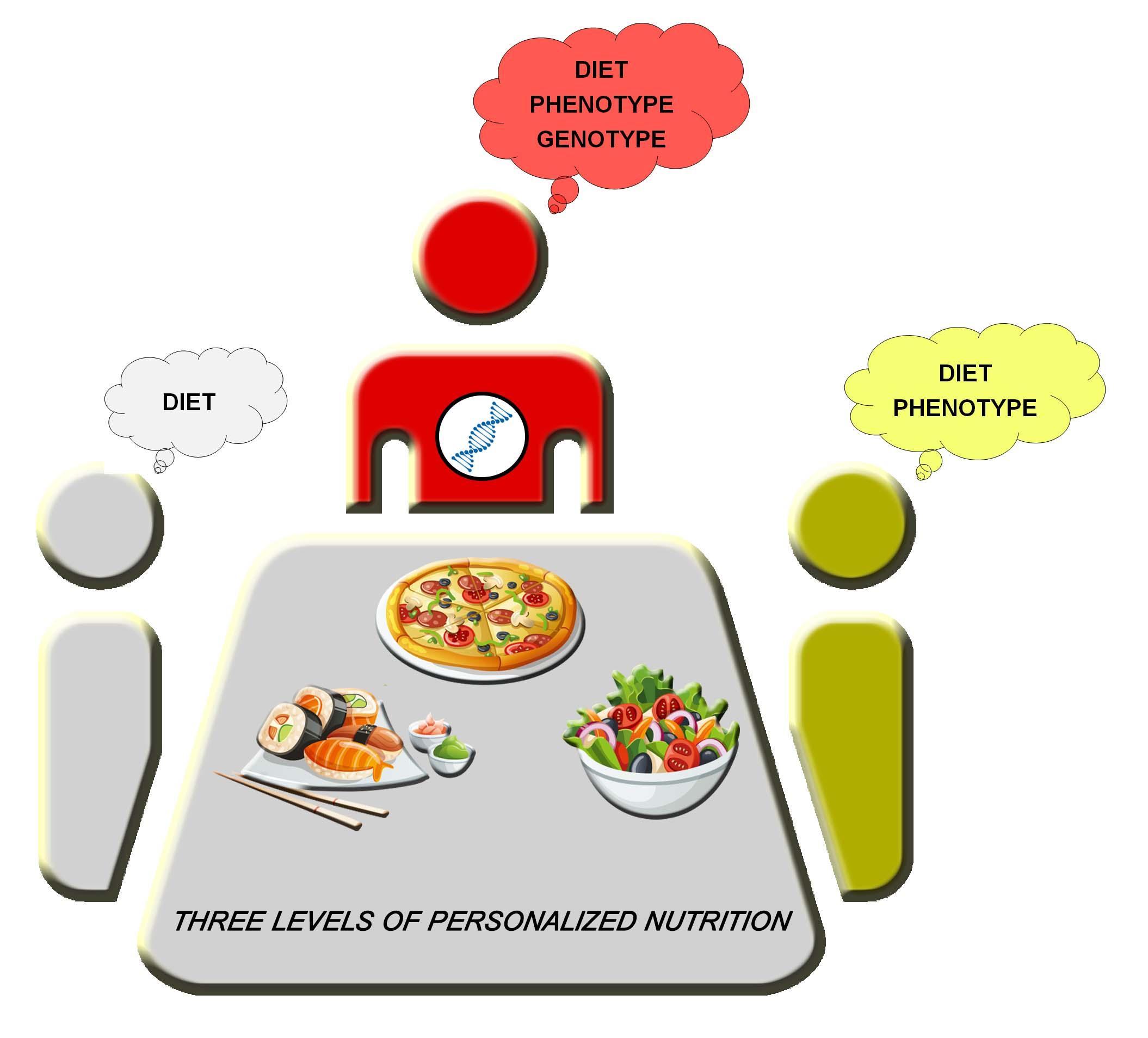Unlocking the secrets of graceful aging and radiant vitality is a quest that captivates the timeless hearts of humans across the generations. As the sands of time trickle through the hourglass, embarking on a holistic journey towards optimal health becomes all the more crucial, especially for our treasured elders. Welcome, dear readers, to a tantalizing exploration of a subject that holds the key to unlocking the fountain of youth – nutrition for seniors. In this article, we delve into the enchanting realm of customized nutrition plans tailor-made to orchestrate a symphony of aging gracefully while embracing the golden delights of life. So grab a seat, dear adventurers, as we unravel the secrets of nutritional wonders that lie before us. Together, we shall unveil the art of nourishing our seniors towards a future marked by boundless energy, resilience, and the joy of optimal aging.
The Importance of a Customized Nutrition Plan for Seniors
Why a Customized Nutrition Plan is Crucial for Seniors
As we age, our nutritional needs change, making a customized nutrition plan vital for seniors to promote optimal aging and overall well-being. A tailored approach to nutrition takes into account an individual’s specific dietary requirements, health conditions, medication interactions, and lifestyle factors. Here’s why a personalized nutrition plan can make a world of difference for seniors:
1. Addressing Nutrient Deficiencies:
Sometimes, seniors may be unaware of their nutrient deficiencies, which can lead to various health issues. A customized nutrition plan ensures that the specific gaps in essential nutrients are identified and addressed effectively through a well-balanced diet comprising of fruits, vegetables, lean proteins, and whole grains.
2. Managing Chronic Conditions:
Chronic conditions such as diabetes, high blood pressure, and osteoporosis are more prevalent in older adults. A personalized nutrition plan can help manage and even prevent these conditions by focusing on foods that promote stable blood sugar levels, reduce inflammation, maintain bone health, and support heart health.
3. Enhancing Digestive Health:
Aging can bring changes to the digestive system, including decreased absorption of certain nutrients and a slower metabolism. A customized nutrition plan can include foods that aid digestion, improve gut health, and optimize nutrient absorption, ensuring seniors receive the maximum nutritional benefits from their meals.
4. Boosting Energy and Vitality:
A tailored nutrition plan takes into consideration the unique energy requirements of seniors, helping them maintain an active and vibrant lifestyle. By providing a balanced mix of macronutrients, vitamins, and minerals, customized plans can support optimal energy levels and minimize feelings of fatigue or lethargy.
5. Preventing Malnutrition:
Inadequate nutrition is a significant concern among the elderly, leading to a weakened immune system, muscle loss, and increased risk of falls. A personalized nutrition plan ensures that seniors meet their daily caloric and nutrient needs, reducing the risk of malnutrition and associated health complications.
| Benefit | Effect |
|---|---|
| Improved cognitive function | Enhanced memory and mental sharpness |
| Stronger immune system | Reduced vulnerability to infections and illnesses |
| Weight management | Maintaining a healthy body weight and reducing the risk of obesity |
By working closely with healthcare professionals, nutritionists, and dietitians, seniors can create a customized nutrition plan that supports their unique needs, promotes optimal aging, and enhances their quality of life.

Key Considerations for Designing an Optimal Aging Diet
When it comes to aging, maintaining good health and vitality is crucial. One way to achieve this is through proper nutrition. Designing an optimal aging diet requires careful consideration of various factors to ensure seniors receive all the nutrients they need for healthy aging.
Here are some key considerations to keep in mind when developing customized nutrition plans for seniors:
- Individualized Needs: Each senior has unique nutritional requirements based on factors such as gender, weight, medical conditions, and medications. It is essential to tailor their diet plans accordingly, considering any dietary restrictions or allergies they may have.
- Essential Nutrients: A well-balanced diet is essential for seniors as it provides the body with the necessary nutrients. Incorporating foods rich in vitamins, minerals, fiber, and antioxidants can help decrease the risk of chronic diseases and improve overall well-being.
- Hydration: Dehydration is a common concern for seniors and can lead to various health issues. Encouraging regular fluid intake, including water, herbal teas, and hydrating fruits and vegetables, is vital for maintaining optimal health.
- Healthy Fats: Including sources of healthy fats, such as avocados, nuts, and olive oil, is crucial for seniors. These fats support brain health, reduce inflammation, and aid in the absorption of fat-soluble vitamins.
Creating a successful aging diet involves a combination of personalized diet plans, regular monitoring, and adjustments as needed. By considering these key factors, seniors can enjoy a nutritious and optimized diet that promotes healthy aging.

Specific Nutritional Recommendations for Seniors: A Comprehensive Guide
As we age, it becomes increasingly important to focus on our nutritional needs to support healthy aging and maintain optimal well-being. Seniors have unique dietary requirements, and customizing their nutrition plans can greatly contribute to their overall health and vitality. To help seniors navigate their nutritional journey, we have compiled a comprehensive guide with specific recommendations tailored to their needs.
The Role of Nutrition in Aging
Nutrition plays a vital role in the aging process, as it impacts not only physical health but also cognitive function and emotional well-being. A well-balanced diet for seniors can help improve energy levels, boost the immune system, reduce the risk of chronic diseases, promote bone health, and support mental acuity. Customizing a nutrition plan ensures that seniors receive the right nutrients in the right amounts, catering to their individual requirements and promoting optimal aging.
The Key Nutrients Seniors Need
Seniors often require specific nutrients in higher quantities due to changes in metabolism, dietary intake, and overall health status. Here are some essential nutrients that are particularly important for seniors:
- Calcium: Vital for maintaining bone health and preventing osteoporosis.
- Vitamin D: Works in conjunction with calcium to support bone strength and may help reduce the risk of falls.
- Fiber: Helps maintain digestive health and prevent constipation.
- Omega-3 fatty acids: Found in fish and certain plant sources, these essential fats promote heart health and cognitive function.
- Vitamin B12: Necessary for proper nerve function and the production of red blood cells.
- Antioxidants: Found in fruits and vegetables, antioxidants help protect against cell damage and may reduce the risk of chronic diseases.
In addition to these key nutrients, it is important for seniors to stay hydrated and maintain a healthy weight. Customized nutrition plans take into account any dietary restrictions, food preferences, and medical conditions to provide seniors with optimal nutrition for their specific needs.
| Food Group | Servings per Day |
|---|---|
| Vegetables | 3-5 |
| Fruits | 2-4 |
| Whole Grains | 6-8 |
| Proteins (lean meats, fish, legumes) | 2-3 |
| Dairy (or alternatives) | 2-4 |
| Fats and Oils | 2-3 |
| Fluids (water, herbal tea, low-sugar beverages) | 8-10 glasses |
To ensure a well-rounded and balanced diet, seniors should aim to consume a variety of foods from each food group. This table provides a general guideline for the recommended servings per day. However, it is important to consult a healthcare professional or registered dietitian for a personalized nutrition plan based on individual needs and health conditions.

Implementing a Personalized Nutrition Plan to Enhance Seniors’ Well-being
As we age, maintaining a nutritious diet becomes crucial for our overall well-being. One size doesn’t fit all when it comes to nutrition, especially for seniors who have unique dietary needs. That’s why implementing a personalized nutrition plan can be a game-changer in enhancing the well-being of our older loved ones.
A tailored approach to nourishment ensures that each senior’s nutritional requirements are met, promoting optimal aging. Customized plans take into account various factors such as pre-existing medical conditions, specific dietary restrictions, and individual preferences. They are designed to provide seniors with the necessary vitamins, minerals, and energy they need to thrive.
One of the key benefits of personalized nutrition plans for seniors is the prevention and management of chronic conditions. By addressing specific health concerns through targeted dietary interventions, we can alleviate symptoms, improve overall health, and even reduce the risk of developing age-related diseases.
Why Choose Personalized Nutrition?
A personalized nutrition plan empowers seniors to take control of their diet and make informed choices about the food they consume. It goes beyond generic recommendations and acknowledges that every individual is unique, with varying nutritional needs and goals. By customizing meal plans, seniors can enjoy a range of benefits, including:
- Optimized nutrient intake: Personalized plans ensure that seniors receive the right balance of essential nutrients, vitamins, and minerals to support their overall health and well-being.
- Increased energy levels: By fueling their bodies with the right foods, seniors can experience a boost in energy, helping them stay active and engaged in their daily lives.
- Improved digestion: Customized plans take into account seniors’ unique digestive needs, ensuring that their meals are easy on the stomach and promote digestive health.
To help visualize the positive impact of personalized nutrition, below is a comparison of two different approaches:
| Generic Approach | Personalized Nutrition Approach |
| Provides general dietary recommendations | Takes into account individual health conditions, preferences, and dietary restrictions |
| May overlook specific nutritional deficiencies | Ensures targeted nutrient intake to address deficiencies and optimize health |
| Doesn’t consider the impact of aging-related changes on nutrition | Adapts meal plans to account for age-related nutritional needs and potential health complications |
By adopting a personalized nutrition plan, seniors can enjoy the benefits of improved well-being, reduced risk of chronic illnesses, and increased vitality. Consulting with a qualified nutritionist or dietitian can help customize a meal plan that meets their specific needs, bringing them one step closer to a healthier and happier aging process.
In Retrospect
As we conclude our exploration into the world of “Nutrition for Seniors: Customized Plans for Optimal Aging,” we find ourselves truly enlightened by the profound impact food choices can have on our golden years. Throughout this journey, we have delved into the depths of nutrition science, unlocking the secrets to a vibrant and fulfilling life, regardless of age.
By delving into the unique needs of older adults, we have come to understand that the path to optimal aging lies not in a one-size-fits-all approach, but in customizing nutrition plans that cater to individual requirements and goals. This journey has empowered us to embrace the diversity of nutrition, recognizing that what works for one may not work for another.
Along our expedition, we have discovered the incredible power of macronutrients and micronutrients to promote longevity, battle chronic diseases, and enhance cognitive function. We have reimagined the importance of protein, lending strength to aging muscles and bones. We have embraced the magic of whole grains, fruits, and vegetables, unearthing a treasure trove of antioxidants, vitamins, and minerals that shield us from ailments and nurture our bodies.
In our endeavor to optimize aging, we have championed healthy fats, understanding that they play an instrumental role in fortifying our hearts and minds. We have unmasked the detrimental effects of excessive sodium intake and developed strategies to reclaim control over our salt consumption, safeguarding ourselves from the clutches of hypertension.
Through this creative exploration, we have also uncovered the undeniable link between social wellness and nutrition. We have emphasized the importance of shared meals, cherished conversations, and the invaluable role of community in nourishing our souls as we nourish our bodies.
As we conclude our journey today, let us reflect on the vast landscape of nutritional possibilities that lie before us. By embracing personalized nutrition plans, we can rise above the constraints of time and age, ushering in an era of vibrant and fulfilling senior years. As individuals, as communities, and as a society, let us commit to crafting customized paths towards optimal aging, where every bite holds the promise of a healthier and happier tomorrow.
So, dear reader, let this be the beginning of your personal quest towards nutrition for optimal aging. Embark on a journey that acknowledges your unique needs, celebrates the power of food, and marvels at the wonders it can bestow upon your golden years. The adventure awaits you, and with each bite, you inch closer to a life well-lived. Bon appétit and cheers to thriving through the art of nutrition!


